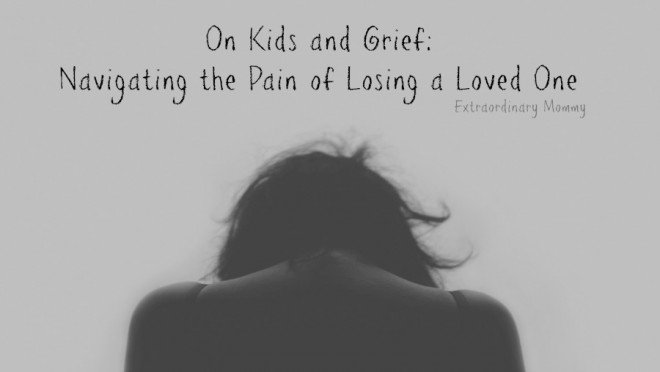She drew herself into me, tight and fierce. It was as though she hoped to somehow crawl close enough to snuff out the emotion that threatened to pull her down. She’s only nine, but she’s tough as nails. She’s not an open book, but rather holds her cards tight to her chest.
On this night, the cards were beginning to crumble.
As she buried her face into my chest, she coughed. It was one of the deep, wracking coughs that comes from a nasty chest cold. She tilted her face up to me, eyes glistening, tear drops gathered, waiting to cascade.
“Am I gonna die?” she whispered.
I hugged her tight. “Of course not, babe,” I answered back. “You just have a cold. You’ll feel better in a couple of days.”
And that’s when the dam broke. She put her head down, because she doesn’t like you to see her cry, and she sobbed softly into her pillow.
“Are you sure I don’t have lung cancer?” she asked.
And that’s when it hit me – that’s when I knew. This wasn’t about her cough. It was about the fact that we’d just learned her grandfather had Stage 4 lung cancer. My tough as nails little girl was wallowing in fear, confusion, and the beginnings of grief.
We walked our kids gently through their grandfather’s 7 month battle with cancer. Living in a different state provided some shield from the effects of watching him slowly fade away. But our final visit, a mere ten days before he took his last breaths, was the visit where they faced death head on.
I hated every minute of it.
I hated it because I didn’t want to lose the patriarch of our family, a man I loved and respected deeply.
I hated it because I didn’t like to see my husband hurting.
I hated it because there was no way to fix it.
I hated it because my kids were losing their grandfather.
I worried about the kids in the days following the funeral. What emotions would need to be processed? What hard conversations would we have? But they surprised me, these kids of mine. They surprised me with their courage and their strength in the midst of grief.
That’s when I was grateful for the time that we had. We had 7 months to help them process the finality of death. We had 7 months to prepare them to say to goodbye to their grandfather. We had time to let them grieve, so that when the day finally came to move forward in our new normal, they were in a well adjusted place.
I’m thankful for that time we had, but I also know that there isn’t always time to prepare. Sometimes death is slow, and the opportunity to say all that needs to be said is there.
But other times, death comes upon our families suddenly, and the grief process happens after the fact.
Regardless of whether you’re able to grieve before or after your loved one’s death, there are a few things that you can do to help your children navigate their way through that event.
1.) Acknowledge their fears.
When a loved one dies, your children are suddenly faced with mortality. Death once seemed just a distant possibility to your little one, but now it’s real. And it’s scary.
They may fear that you will die next, or perhaps they fear that they will die soon. Acknowledge these fears. Understand the depth of emotion that it requires to process an event like the death of a loved one.
Don’t placate their fears with a simple “It’s gonna be okay,” because they don’t understand what you mean. Validate their fears by letting them know that you understand.
2.) It’s okay to show emotion
When you face the death of a loved one, everyone is affected. Your kids will understand this, even the younger ones. They know that you’re sad, and they will want to fix it. No child likes to see her parents upset.
But when you process your own emotion in front of your children, you show them that it’s okay to feel sad. Spend a little extra time together on the days when the emotion is bottled up. Snuggle tight and watch movies, color pictures, or simply read a book.
Don’t be afraid to walk the road of grief as a family.
3.) Find age appropriate resources to help your children understand what’s happening.
Depending on how close the person is who died, you will want to find the right resources to help your children process the months and years that follow. From books to websites to ministries, there is a wealth of wisdom from which to draw.
If your child loses a parent, or a close friend, or if you experience the death of someone in an unexpected or particularly tragic manner, you may want to consider counseling to allow a professional to help them walk the path ahead.
Processing death is difficult and emotionally painful, no matter the age. Whether we have the time to prepare our children for the death or not, the path of guiding them through that emotional trauma can be taxing.
Don’t walk the path alone.
Bring friends in to walk beside you, to carry your own grief as you carry your child’s. There’s power in community, and never is that more evident than when we walk together through grief.


Leave a Reply